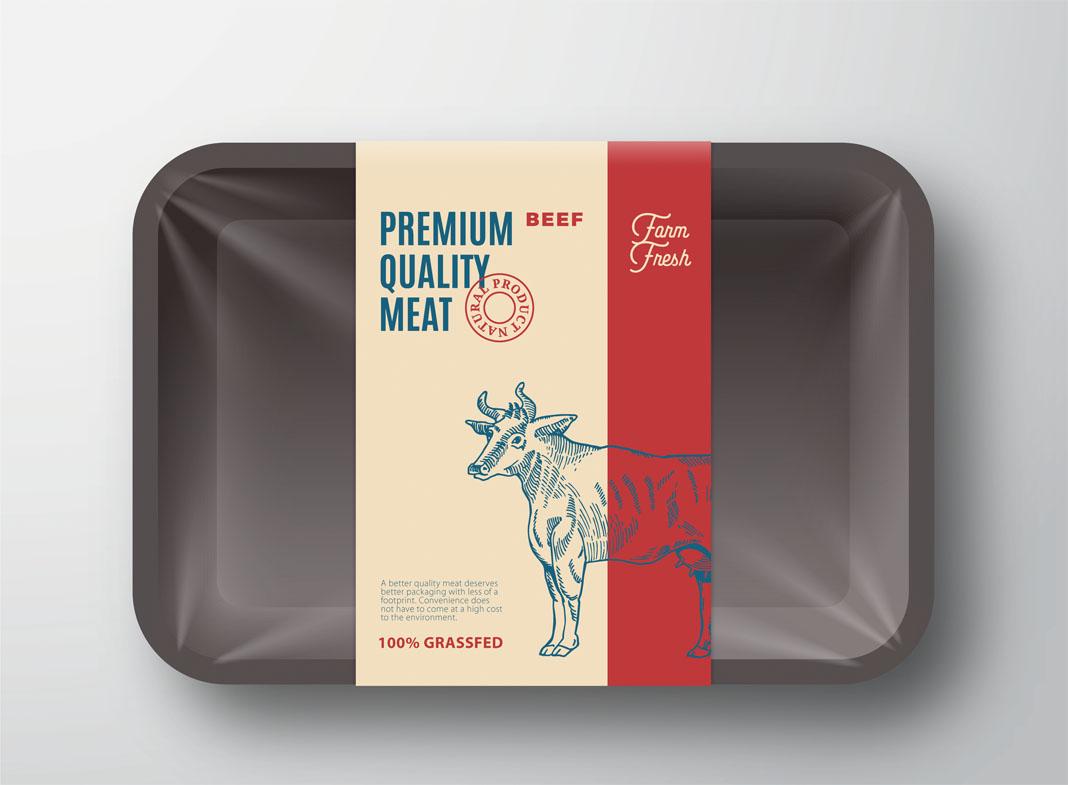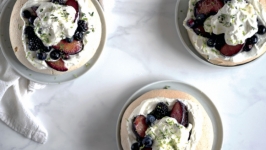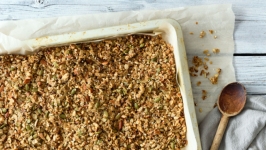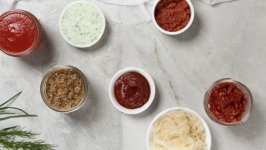Rethinking Packaging
Subscription boxes are a booming business and it feels as though a week doesn’t go by without a new player entering the already-crowded field. But with every food box delivered curbside comes an enormous amount of waste — much of it plastic. A few companies are trying to reduce the amount that ends up in the landfill by changing their packaging, but most of all, they're altering their thinking behind the convenience they offer customers.
NIKU Farms
For Jake Goldberg, a trip around the world and a break from his management job was enough to signal a significant life change. After watching people grow and raise their food during his travels, he wanted to see more of the same transparency around food in Ontario. Along with co-founder Luke Armstrong, Goldberg created NIKU Farms, a small-scale farm-to-door meat-delivery enterprise.
“There’s very little legal responsibility for supermarkets to tell you exactly where the meat has come from,” Goldberg says. NIKU tells you where your meat was raised and how the animals were treated. The co-founders curate their selections from local farms in Ontario, which include Big Rock Bison in Shallow Lake and Woolley’s Lamb Farm in Simcoe.
The farms, always visited and vetted by the two, must provide pasture-raised and grass-finished meat and use non-GMO feed. Customers can learn about each farm and farmer on the company’s website. For example, Big Rock Bison considers grassland restoration a significant component of their operation and promotes the growth of native grasses on which its bison thrive. In sharing this type of information, “we have an opportunity to showcase yet another alternative to the current system of factory farms,” Goldberg explains, adding that the NIKU model provides a farmer with three times more money than a traditional farming model.
The team is taking this ethos one step further, by switching out it's 100-per-cent recyclable packaging to Green Cell Foam insulated packing and it's one of the first meat companies in the country to do so. The non-GMO cornstarch-based foam is compostable, biodegradable and water-soluble. It claims to use 70 percent less energy and produce 80 percent fewer greenhouse gases than petroleum-based insulating foams.
NIKU Farms
nikufarms.com | 1.888.789.3213 | @nikufarms
West Side Beef
For chef Carl Heinrich of the award-winning Richmond Station restaurant, serving high-quality beef is a given. But he quickly realized customers couldn't buy and store whole animals, direct from the farm, the way the restaurant does. He created West Side Beef, a meat-share system, to pool customers together and collectively buy and share meat. Carefully vetted, each farmer is “held to the highest standards […] that go well beyond the general food-safety guidelines in the meat industry,” says Jamie Waldron, director of customer experience at West Side.
West Side's primary environmental-protection practices start with careful vetting and buying directly from the farmer. “Factory farming is one of the largest contributors to greenhouse gases, and, as a result, we never have and never will work with large-scale factory farms,” Waldron says. “The majority of our farmers grow their own feed, which eliminates the need for trucking in grain from further away,” he adds.
Furthermore, West Side commits to buying only whole animals. “We don't believe in ordering only the more popular cuts of meat,” Waldron explains. “We use every part of the animal to create our product offerings — bones to make broth, leftover fat in our rendered beef tallow. Pork lard and chicken Schmaltz and all organ meats are sold to an all-natural, fresh dog food company.”
Recently moving away from black plastic packaging, the company has its eye on plant-based plastic film now available in Australia. The team is working with companies in Ontario to start producing the same packaging, avoiding the carbon footprint created by importing it from the other side of the world. Its cardboard boxes are also reusable, in addition to being recyclable — something many customers take advantage of on repeat orders.
Going beyond environmental practices, West Side always has its local community in mind, too. “We are a food business with a goal of being able to connect as many people as possible to a farm-direct meat source that is affordable and good for them,” Waldron says. With that in mind, the company donates 20 percent of its net profit each year in the form of meat to non-profit organizations such as Second Harvest.
West Side Beef
westsidebeef.com | @westsidebeef
Seafood Crate
To say seafood is in Phil Benhaim’s blood might be underselling it. His father started Inter-Canada Fisheries more than 30 years ago by selling octopus from fishers to whom he connected during scouting missions. It was a unique business model at the time. He purchased directly from them and sold to restaurants. The model has since evolved, but Benhaim is now using his father’s idea of bringing seafood direct to consumers at home. “My brother and sister and I grew up around seafood and the industry,” Benhaim says. “It’s our passion and we wanted to share that passion with others, not just indirectly through restaurants, but directly with Canadians.”
Though Benhaim sources seafood from around the world, each farmer and fisher is carefully vetted and must be certified by organizations such as the Aquaculture and Marine Stewardship Councils — both international non-profits that manage certification and labelling for responsible aquaculture and fishing practices.
With their new branch of a tried business, Benhaim and his team are continuously exploring and examining their commitment to sustainability and the environment. Currently, their boxes are made from recycled materials and the insulation comes from old recycled tires. The ice-gel packs they use contain salt and can be thawed and poured down the drain. Though they use vacuum-sealed plastics that aren’t recyclable in all municipalities, they’re exploring biodegradable and plant-based plastics. “Once technology progresses to the point that they can be used for vacuum-sealing, we’ll happily switch over regardless of any increased cost.” In the meantime, the company is donating part of the profit of every crate sold to The Ocean Cleanup, a non-profit organization developing technologies to rid our oceans of excessive plastic pollution.
Seafood Crate
seafoodcrate.com |@seafoodcrate







